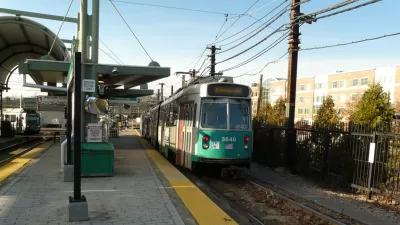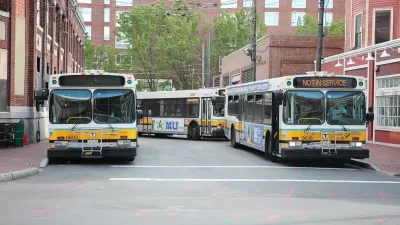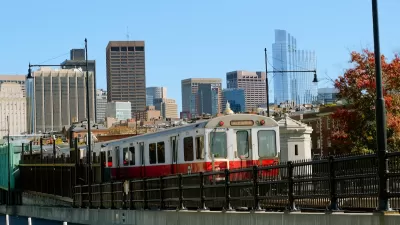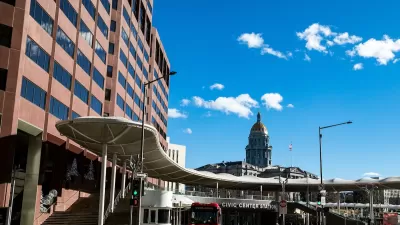Private companies involved in Boston and Denver rail travel are facing increasingly large fines for service failures, and some are going unpaid.

Many different organizations need to work together to make public transit work well, and cities provide financial incentives to make sure these organizations provide the best service possible, reports Daniel C. Vock for Governing. "But it hasn't been working in Boston and Denver lately, where the private companies running both regions' commuter rail lines have faced hefty fines for structural problems," Vock writes.
In Denver the city has been forced to hire additional personal because of technical issues. "The problem is with the crossing gates -- they stay down too long. Flaggers have been hired at crossings to make sure impatient drivers and pedestrians obey the gates and don't go around them," Vock reports. The city has looked to pass these costs back to its supplier.
Boston has also faced issues with Keolis, the company under contract to run rail transit there. "The biggest controversy has been about the fines the company hasn't paid. The Boston Globe recently reported that MBTA waived $839,000 in fees incurred for widespread problems on Keolis’ commuter rail service during the winter of 2015," Vock says. These fines were waved because of the extreme weather the city faced during that winter, but other fines continue to mount for the company.
FULL STORY: Private Companies Face Big Fines for Commuter Rail Problems

Alabama: Trump Terminates Settlements for Black Communities Harmed By Raw Sewage
Trump deemed the landmark civil rights agreement “illegal DEI and environmental justice policy.”

Planetizen Federal Action Tracker
A weekly monitor of how Trump’s orders and actions are impacting planners and planning in America.

The 120 Year Old Tiny Home Villages That Sheltered San Francisco’s Earthquake Refugees
More than a century ago, San Francisco mobilized to house thousands of residents displaced by the 1906 earthquake. Could their strategy offer a model for the present?

In Both Crashes and Crime, Public Transportation is Far Safer than Driving
Contrary to popular assumptions, public transportation has far lower crash and crime rates than automobile travel. For safer communities, improve and encourage transit travel.

Report: Zoning Reforms Should Complement Nashville’s Ambitious Transit Plan
Without reform, restrictive zoning codes will limit the impact of the city’s planned transit expansion and could exclude some of the residents who depend on transit the most.

Judge Orders Release of Frozen IRA, IIJA Funding
The decision is a victory for environmental groups who charged that freezing funds for critical infrastructure and disaster response programs caused “real and irreparable harm” to communities.
Urban Design for Planners 1: Software Tools
This six-course series explores essential urban design concepts using open source software and equips planners with the tools they need to participate fully in the urban design process.
Planning for Universal Design
Learn the tools for implementing Universal Design in planning regulations.
Clanton & Associates, Inc.
Jessamine County Fiscal Court
Institute for Housing and Urban Development Studies (IHS)
City of Grandview
Harvard GSD Executive Education
Toledo-Lucas County Plan Commissions
Salt Lake City
NYU Wagner Graduate School of Public Service





























